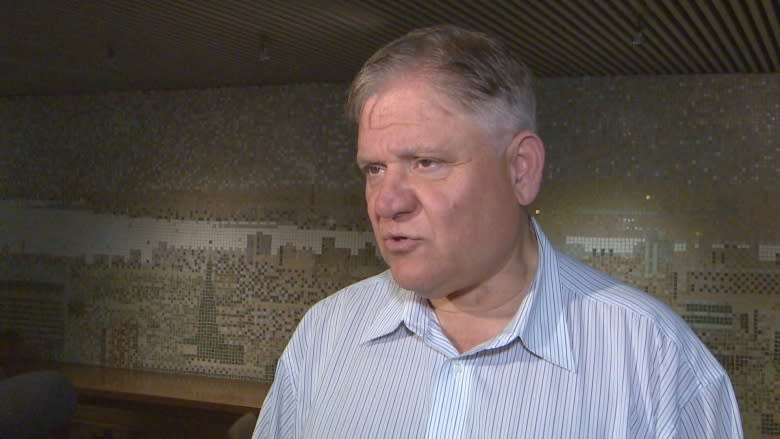Toronto has fewer paramedics with advanced life support skills, councillor warns
A Toronto councillor is warning the city has fewer paramedics with advanced life support (ALS) skills working these days, but Canada's largest ambulance service says if you have an emergency you're still in good hands.
Coun. Jim Karygiannis, who represents Ward 39, Scarborough-Agincourt, recently spent several days with paramedics and says he heard numerous concerns, ranging from the number of advanced life support crews operating in the city to the quality of the uniforms and equipment the city is issuing to paramedics.
CBC Toronto has also reported on serious issues with the $17 million Kronos scheduling system, which the city is working to fix.
Karygiannis says the problem is hurting paramedic morale.
"They respond to our 911. Are we responding to their 911?" said Karygiannis.
Mike Merriman, a paramedic and the EMS unit representative for CUPE Local 416, says some 30 per cent of paramedics used to function in ALS roles, which allows them to administer more powerful drugs, restart hearts and even intubate patients en route to hospital. Now that number is as low as 10 per cent — although neither Merriman nor Toronto Paramedic Services (TPS) have an exact number.
Merriman blames the brass. He says many paramedics with ALS training choose to work on Basic Life Support (BLS) crews to avoid shifts with bad hours.
Paramedic service says Torontonians in good hands
While response time is crucial, Merriman says for situations like cardiac arrest, the choice between ALS and BLS is clear.
"Your best chance at survival is having an advanced life support crew," he said.
TPS declined an interview, but spokesperson Kim McKinnon issued an email statement about Karygiannis's concerns.
"Toronto Paramedic Services can assure the public that our emergency medical dispatchers will not only respond quickly to their 911 calls for help, but our highly skilled paramedics will also arrive quickly to the location of their medical emergency," McKinnon wrote.
Both Merriman and McKinnon also note the majority of service calls, of which there are some 800 a day, don't require an ALS response.
The TPS has also enjoyed some recent successes. It just finished hiring 200 new paramedics, following a nearly decade-long freeze, and is consistently achieving its target of making it to calls within 8.59 minutes.
Despite the assurances, Karygiannis wants TPS to ensure there are more advanced paramedics on the road.
"It's not a matter of having enough crews out there. It's a matter that we have advanced life saving paramedics that will respond to your call," he said.
Uniforms not uniform
Karygiannis says he also heard a number of complaints about the uniforms issued by the city.
He says he saw people wearing four different uniforms, and female paramedics who were forced to wear men's clothing.
Equipment-wise, paramedics also complained about the stethoscopes they were issued, Karygiannis said, with some people saying they couldn't hear a pulse over the sirens.
Merriman echoed those issues, blasting the "lack of uniformity of the uniforms."
He said paramedics also lack hardware to carry medical equipment, sometimes using stretchers to carry gear as well as patients.
McKinnon's statement said the service takes those concerns "very seriously."
"Any paramedic with immediate concerns is asked to tell their supervisor so that the proper tools and equipment can be provided," McKinnon said.
Paramedics are also encouraged to work with the uniform and equipment committee to improve their gear.
"We try our best to meet staff's needs and provide replacements, up-to-date equipment in a timely manner."
Karygiannis says he plans to bring a report to city council next week outlining the concerns, hoping that it will take action to help front-line workers.
The city's budget for the paramedic service was around $211 million in 2017 — or about two per cent of total spending.



